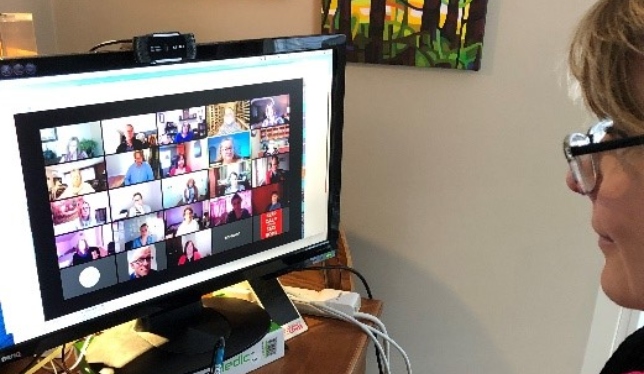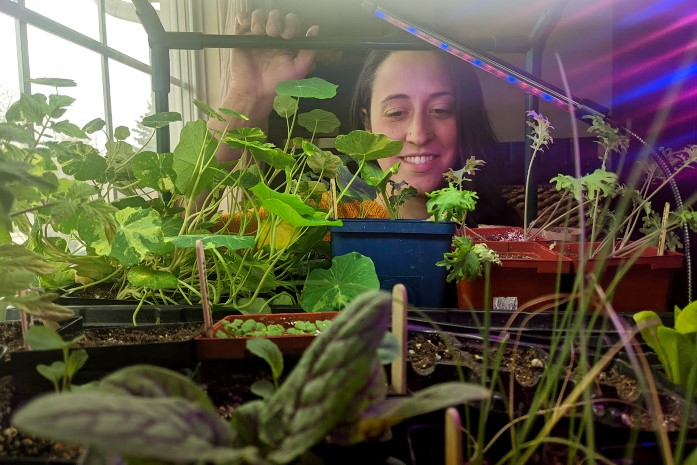Despite the pandemic, the beat goes on in continuing education
With expertise in flexible, modular training through online delivery, CE units are helping to steer their institutions through the chaos of COVID-19.

COVID-19 has upended higher education as we know it, challenging Canada’s university leaders to rethink how to deliver programs in the face of a double whammy: a deep global recession and a public health crisis that prohibits conventional classroom learning for the foreseeable future. Yet, for continuing education divisions at these institutions, it’s a time to shine.
Experienced at offering flexible, innovative learning options online, CE departments are well-positioned to respond to rising interest in professional development among those who are using the shelter-in-place period to upskill for their jobs or retrain for new ones. Many CE units are also enjoying momentum with their personal and recreational learning options, as more Canadians look to ease their isolation by exploring new interests, feeding their intellect and connecting with others.
With university campuses in Canada closed for in-class learning during the spring and summer terms, CE units are also playing a bigger role in generating revenue for their institutions. At the same time, they are actively supporting their institutions to transition full-time, on-site programs into high-quality digital or blended formats to help them stay viable and operate safely in the fall.
Boosting competencies
Historically, recessions have led to upswings in participation in higher education: Statistics Canada found that in 2009-2010, at the tail end of the Great Recession, four out of 10 university and college graduates chose to pursue further postsecondary education. Of course, it’s unclear whether the global pandemic will have a similar effect.
At the University of Calgary’s continuing education department, there has been a sharp rise in demand for upskilling in subjects such as adult education, business intelligence, data analytics, web development, computer programming, change management, project management and human resources. “People are concerned about employment and are looking for particular competencies to help,” says continuing education director Sheila LeBlanc. “They are looking for a way to take control of their future.”
However, the coronavirus has negatively affected some of the CE department’s operations. With global borders now closed or highly restricted, it can no longer count on the international students who previously took its English language course. But, with a mindset of reinvention, the department is finding other ways to stay relevant. It has adapted its ongoing series of public webinars on faculty research to include sessions on COVID-19 topics. And while it chose to postpone most personal-interest offerings, it did introduce a new one that quickly sold out: Vegetable Gardening: Growing Resilience.

“It’s spring, and people are thinking not only of gardening, but about our food supply, and seeing all the social media posts of people baking bread, so it resonated,” says Dr. LeBlanc.
Stressful times
Meditation is what has struck a chord among students at the College of Extended Learning (CEL) at the University of New Brunswick. One of a large number of online personal and cultural enrichment courses the college offers in subjects such as Acadian culture, digital photography and weaving, the eight-week Beyond Mindfulness program has been a hit during these stressful times, especially since the fee was dropped.
“With all the limits on social interaction, we are looking for human contact with others outside our four walls,” says Ian Allen, executive director of the CEL. “My wife is doing the program – she is used to working from home, but I think I’m driving her crazy.”

The CEL also usually operates full-day summer camps for kids ages 6-14; to salvage the season and, as Dr. Allen notes, still “give parents a break,” it will now offer them as 90-minute virtual sessions. On the professional development side, demand has increased for its many just-in-time options, particularly for open-entry certificate programs in areas such as human resources, management development, project management, and occupational health and safety.
Micro-certification pilot project
At OCAD University’s Office of Continuing Studies, director Evan Tapper is optimistic about the prospects of its inaugural online micro-certification program, Empathy + Social Insight for Human-Centred Design. The program was developed with $25,000 from eCampusOntario as part of its micro-certification pilot project to advance targeted training in high-demand employment skills. The four-module, non-credit program explains the principles, practices and importance of design that considers the needs of end users. This is the first of five micro-certifications OCAD U is rolling out in the coming months.
“We’re very fortunate with the timing,” Dr. Tapper says. “When you think about the financial barriers to education that may arise, micro-credentials are a cost- and time-efficient way to get the necessary skills to be ready for when the economy recovers.”
OCAD U has also introduced Inside Art and Design, a free remote summer seminar series on the research endeavours of faculty members. Launched on May 25, it includes five weekly seminars on topics such how design supports public health communication, and the role of art in imagining the future. This is also a marketing initiative: OCAD U is requiring registration as a way to capture leads and is offering participants a 10 percent discount on enrolment in regular continuing studies programs in the fall.
“A flood of free programs”
Tracey Taylor-O’Reilly, assistant vice-president of continuing studies at York University, is acutely aware of the pressure on CE departments to lower prices during a recession, particularly when there is considerable competition from low- and no-cost massive open online courses and private training organizations. But she’s concerned that competing on price could undermine CE units and the sector as a whole.
“I’m worried about a flood of free programs,” she says. “New programs, to do them well, cost a lot of money and take a lot of time, and we don’t want to incentivize faculty members jumping in and doing it badly.”
The way Dr. Taylor-O’Reilly sees it, CE units whose offerings are tightly aligned with the needs of employers will not only survive but thrive during this economic downturn. That’s the approach of CE at York, which specializes in short, accelerated cohort programs designed with industry to fill the largest national labour market gaps. These are generally six-month, three-course part-time certificate programs now offered fully online in skillsets such as big data analytics, blockchain development, cybersecurity, user experience design and digital marketing. According to surveys of its program advisory council members, these skills will be in even greater demand as companies reorient themselves during and after the pandemic. The school added extra sections to the spring term and is pursuing partnerships with CE units at other universities across the country to attract more students.
Naturally, these options come with relatively high price tags, but Dr. Taylor-O’Reilly says students seem to understand the logic of investing now to land high-paying jobs later: spring term enrolments by domestic students are up 25 percent compared to last year (achieved with the help of a robust social media campaign). Still, recognizing the financial hardship many are now experiencing, the school created a Continuing Studies Emergency Benefit, which awarded 24 $1,500 tuition credits to eligible Canadian workers impacted by COVID-19.
“I think we have a high bar to overcome right now in demonstrating the ROI (return on investment),” says Dr. Taylor-O’Reilly, capturing a sentiment that is likely felt widely across the sector. “We’ve had to work much harder to maintain the same enrolment as last spring … but the needs for these jobs is greater today than a week ago, and we can help people get them.”
Featured Jobs
- Business – Lecturer or Assistant Professor, 2-year term (Strategic Management) McMaster University
- Veterinary Medicine - Faculty Position (Large Animal Internal Medicine) University of Saskatchewan
- Psychology - Assistant Professor (Speech-Language Pathology)University of Victoria
- Canada Excellence Research Chair in Computational Social Science, AI, and Democracy (Associate or Full Professor)McGill University















Post a comment
University Affairs moderates all comments according to the following guidelines. If approved, comments generally appear within one business day. We may republish particularly insightful remarks in our print edition or elsewhere.